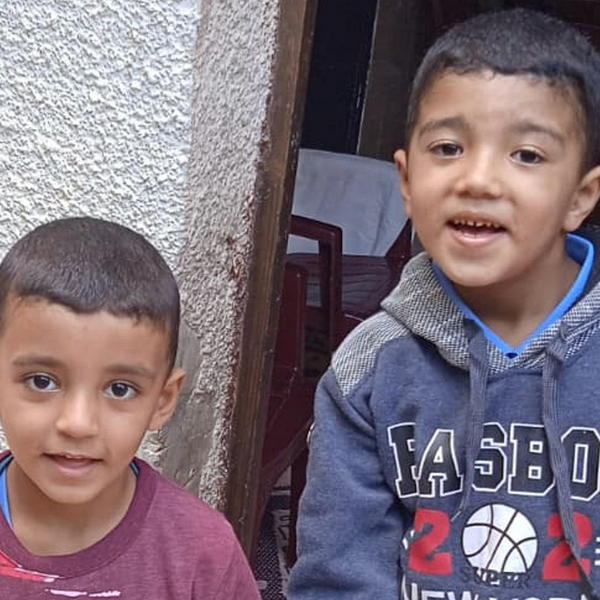You can help stop the killing of an innocent person.
Richard Charles Johnson was convicted on the testimony of a person who later admitted she lied at his trial and is scheduled to be executed by the state of South Carolina on May 3, 2002. Governor Jim Hodges is empowered by the state to grant executive clemency and commute his death sentence.
The killing of innocent people is a national issue, so wherever you live, please send a message to Governor Hodges by e-mail, fax, or letter urging him to save the life of a man unjustly convicted of a murder committed in 1985. Understanding she could be prosecuted for the murder herself, Connie Sue Hess made a sworn confession that she committed the murder just hours before Richard Johnson's first scheduled execution in 1999.
Although Ms. Hess' trial testimony was credible enough to convict Johnson, her subsequent confession was ruled not credible and a 3 to 2 majority of the South Carolina Supreme Court upheld the ruling. Justice Waller, a dissenting member of the Court wrote, "... I believe that to deny Johnson a new trial in the face of a confession by someone who was admittedly present when the murder was committed would constitute a denial of fundamental fairness shocking to the universal sense of justice." Justice Pleicones said, "Given the lack of physical evidence to indicate [Johnson], and not Harbert or Hess, fired the shots which killed Trooper Smalls, it is my opinion that Hess' confession would probably change the result if a new trial were granted."
The scheduled execution of Mr. Johnson continues the tragedy that began with a "joy ride" and turned into a sordid story of sex, drugs and murder in September of 1985.
Richard "Ricky" Johnson and Daniel Swanson, a businessman with a lengthy history of mental illness and psychiatric treatment, left Morehead City, North Carolina in Swanson's RV headed to Florida. Johnson and Swanson had been together for a day and a half before Swanson picked up two hitchhikers at a rest stop just over the South Carolina line and everything went awry. The hitchhikers were Connie Sue Hess, a runaway, and her friend, Curtis Harbert, who was wanted on criminal charges.
Hess said she and Harbert had sex with Swanson in the back of the RV with Johnson at the wheel. The sex was corroborated in forensic reports from the autopsy of Mr. Swanson. Hess joined Johnson in the driving compartment, and, as they drove through Clarendon County, South Carolina, Hess says Harbert shot and killed Swanson.
They continued south on I-95 with Johnson driving very erratically. He'd been drinking heavily and using drugs. In Jasper County near the Georgia border, Trooper Bruce Smalls pulled the RV over. As he stood on the steps to the RV, he was shot and killed.
Johnson, Hess, and Harbert left the scene with Hess and Harbert headed in one direction, and Johnson in the other. Hess and Harbert each gave statements to law enforcement officials. They told law enforcement and the jury that Johnson had killed both Swanson and Trooper Smalls. But in a later statement, Hess said that Harbert - not Johnson - killed Trooper Smalls.
At trial Hess decided to go with her first story that Johnson had killed Trooper Smalls and Swanson. In 1999, Hess finally confessed that she killed Trooper Smalls and Curtis Harbert killed Swanson.
The physical evidence linking Johnson to the crime was virtually non-existent. No gunpowder residue was found on his hands. When arrested, Johnson was in such a daze from alcohol and drugs that he couldn't remember anything and was immediately hospitalized with delirium tremens. Mr. Johnson had a history of alcohol and drug abuse accompanied by blackouts and memory loss but no record of violence, either before or after his incarceration. With no memory he was unable to defend himself.
The case against Johnson turned almost wholly on the unreliable testimony of Harbert, Hess, and a jail house snitch. Johnson was tried, convicted and sentenced to death on two occasions, once in 1986, and again in 1988. The juries did not hear the full story and they convicted and sentenced an innocent man to death. Harbert and Hess were offered complete immunity and freedom in exchange for their testimony against Mr. Johnson.
Between the first and second trial, Ms. Hess recanted her testimony.
She asked her lawyer to contact the sheriff and tell him that Harbert had killed both Swanson and Smalls. The lawyer forwarded the letter to the sheriff. This information was never passed on to Johnson or his lawyers, and the state did not call Ms. Hess as a witness at the second trial, claiming she was unavailable. The jury was never informed that the jail house snitch had made a livelihood from testifying against other inmates.
Trooper Bruce Smalls' mother, Ms. Thelma Blue, stated in an affidavit that "killing Mr. Johnson . . . will not bring my son back and serves no purpose."
It is virtually unprecedented that we are about to execute a person when another person has come forward confessing to be the true killer. Governor Hodges is facing a hotly contested race for re-election in November, and politicians want to be tough-on-crime, but nobody wants to kill an innocent person. A politician perceived as a thumbs-down-Caesar, who kills an innocent person, is a sure loser.
Save an innocent man by immediately writing the Honorable Governor Jim Hodges, Governor of South Carolina, Post Office Box 11829, Columbia, South Carolina 29211, or FAX: 803-734-9413, or EMAIL: governor@govoepp.state.sc.us For further information: www.sceja.org


